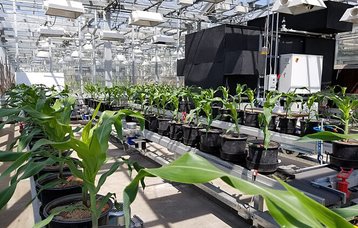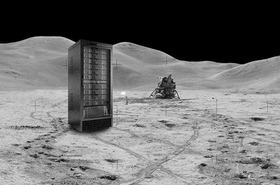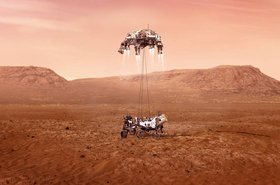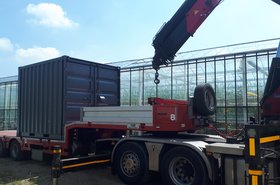Digital Crossroad in Indiana, is hosting a Purdue University agriculture technology project aiming to build robots that can plant and harvest crops remotely - potentially on the Moon or Mars.
The project has won $1 million in federal and private funds, and will use gaming technology to solve tough AI challenges, including how to make robots which can spot the peak of ripeness, working first with tomatoes and then with strawberries. It will use a 4,000 sq ft smart greenhouse on site, built by Digital Crossroad which will be warmed by the data center's waste heat.
The project is mostly funded through a $726,000 Sprint (Scaling Pandemic Resilience Through Innovation and Technology) award, intended to fight the impact of pandemics. The greenhouse is part of a $276,000 in-kind support package from Digital Crossroad.
RoboCrop
“We are excited to be awarded an EDA Sprint Challenge grant to support this innovative project,” said Niaz Latif, dean of the College of Technology and interim dean of the College of Engineering and Sciences at Purdue University Northwest (PNW). “This transformative work will create jobs and have a positive economic impact.”
Project Traverse (agTech Robotics, Automation and Virtually Employed Resiliently Scaling Enterprises) is intended to alleviate labor shortages and make US agriculture more efficient, using advanced manufacturing technology and robotics to develop and test remote planting and harvesting of multiple crops.
The smart greenhouse will be adjacent to the second data center building on the campus, which has been converted from a former coal-fired power plant on the Indiana-Illinois border. Redirecting the data center's waste heat into the greenhouse offsets the data center's emissions and provides a renewable source of power.
PNW is leasing the greenhouse, and Traverse will be the first project there. “Project Traverse and the new Digital Crossroad data center in Hammond are great examples of the transformation happening in Northwest Indiana,” said Thomas P. Dakich, managing member, Digital Crossroad.
The project's raison d'etre is to address supply chain disruptions that took place during the coronavirus pandemic, but North West Indiana news source nwi.com says the project could potential help humankind colonize the universe.
"We got the idea from a NASA solicitation on how to make the Moon and Mars habitable," Project Traverse's lead investigator, entrepreneur in residence Mont Handley told nwi.com. "You don't want highly trained astronauts to do the physical work of picking produce in a greenhouse."
As well as designing the robots, Project Traverse will train skilled workers to make and repair remote agriculture systems in the US, said Handley: “Project Traverse will allow the United States to recover from decades of trade imbalance for produce, provide resilient harvests of healthy, nutrient-rich produce to the public during pandemics or other global supply chain disruptions, and offer remote and safe employment to a nimble workforce skilled in remote management of horticulture crop."
In fact, the system may not be as autonomous as the description implies. Choosing the right moment to pick fruit has been a tough problem for AI to solve, so the project plans to have people do it using home gaming systems, potentially creating a new occupation.
"Machine operators would remotely pick tomatoes, strawberries, fruits, and vegetables," said PNW Development Director Don Babcock. "You can grow the vegetable and fruit and harvest them remotely when they're ripe. That's the concept. It's something really unique we're doing in Northwest Indiana we need to amplify."
According to Handley: "It's the democratization of robots, making them as inexpensive as a used pickup truck for small growers who might be growing heirloom produce."
The Sprint Challenge was launched in 2020 to address the economic, health, and safety risks caused by the coronavirus pandemic through entrepreneurship and innovation.




